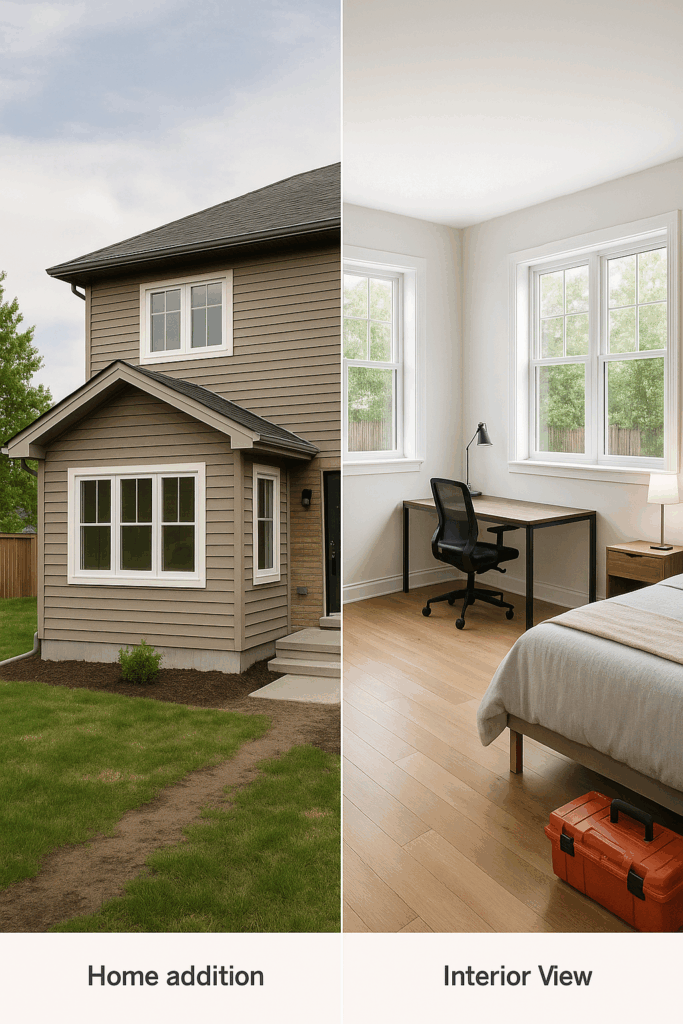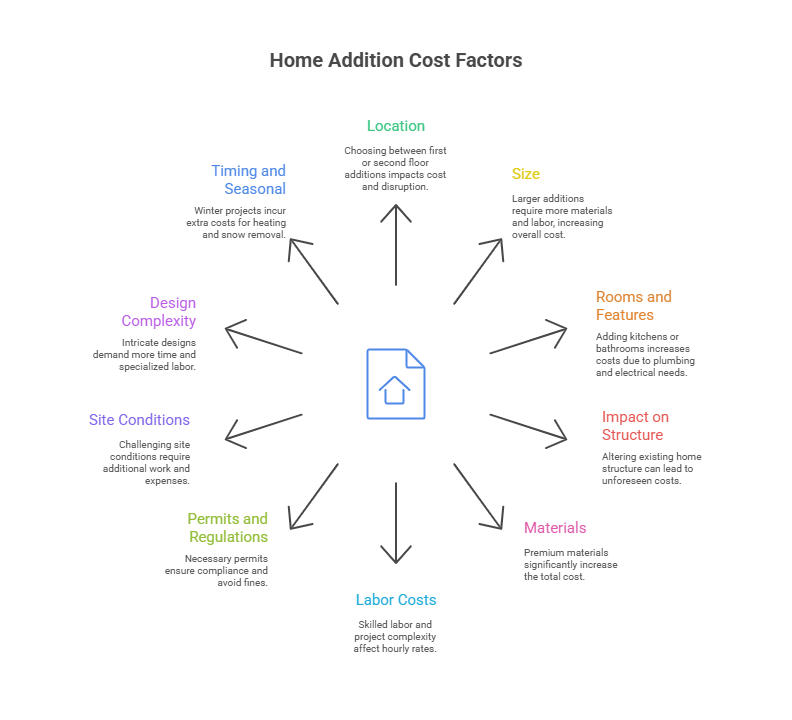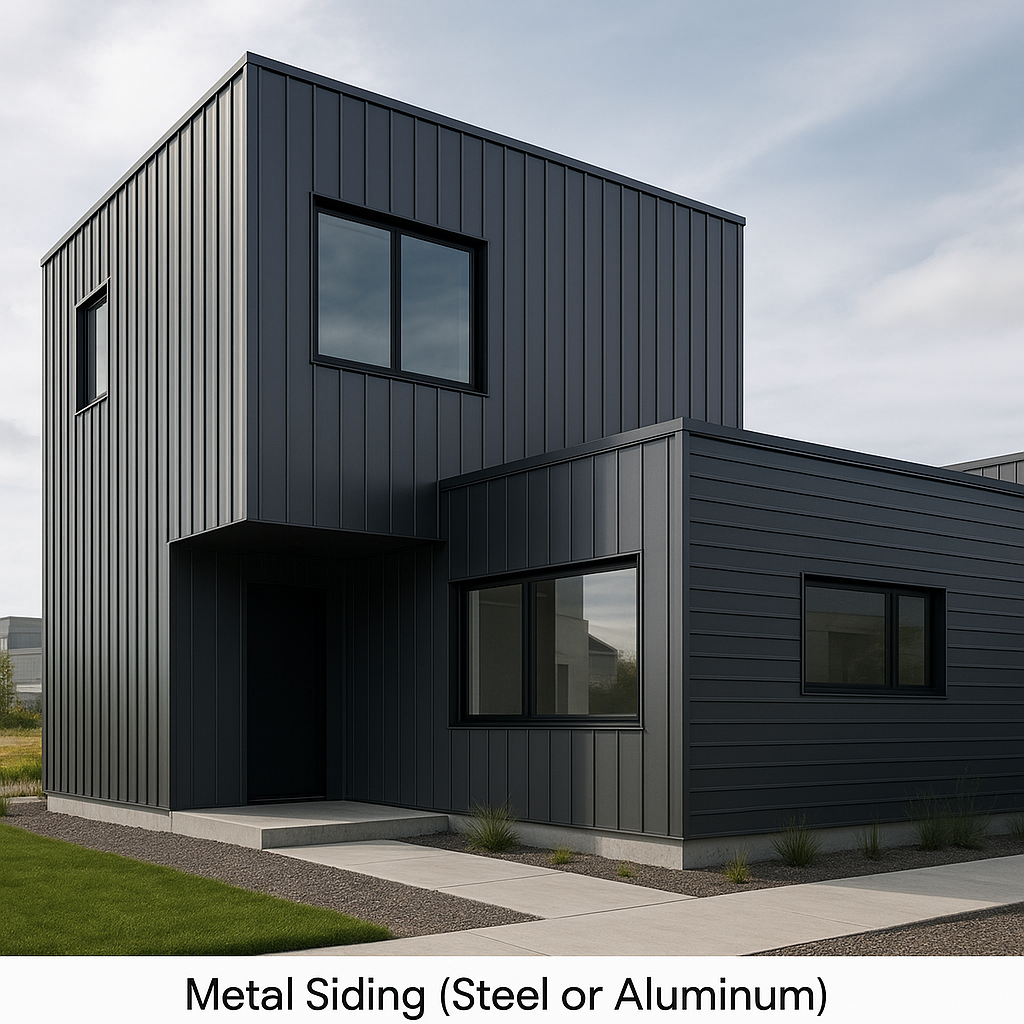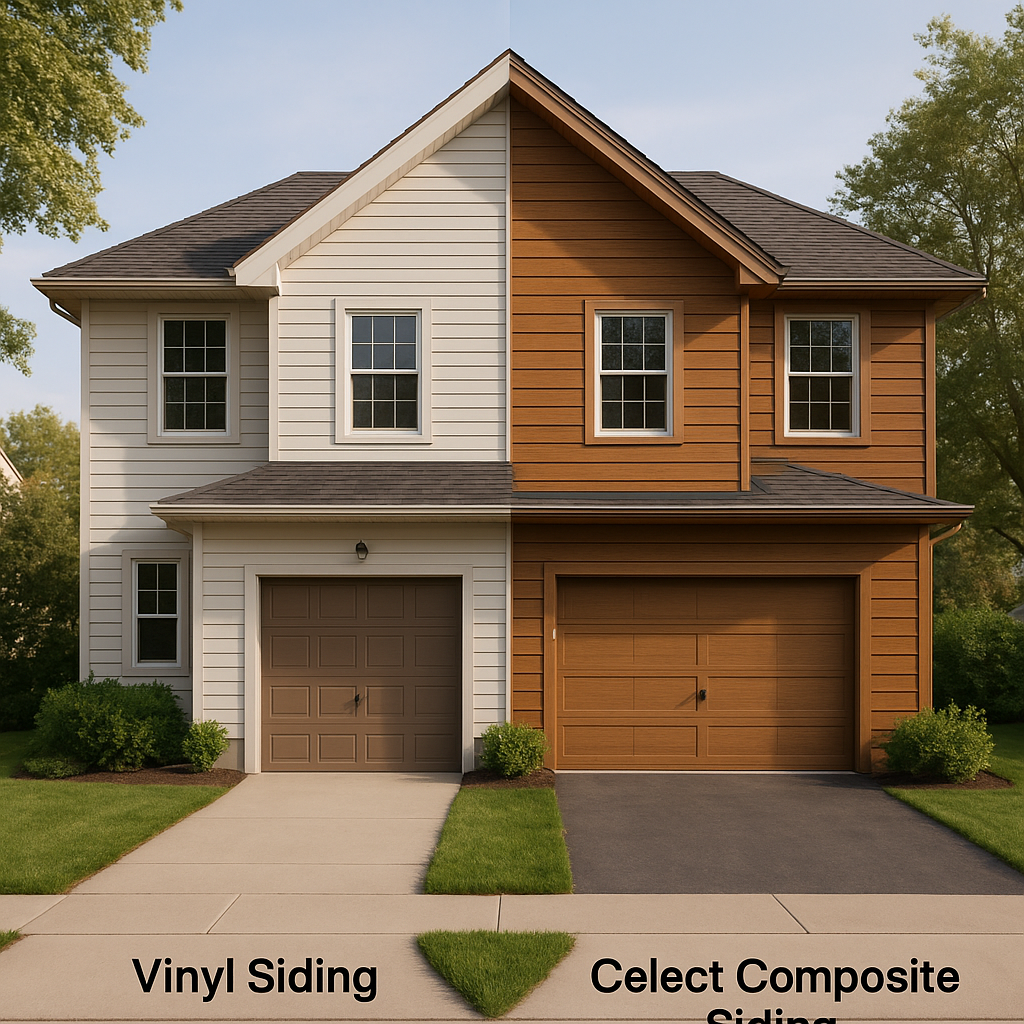
Over time your family grows and your lifestyle changes. Your “forever home” can quickly become too small and feel like it lacks space. If you want more space but you’re not quite ready to sell your home and get a bigger one, a house addition is the answer for you. But how much will a home addition cost?
When planning a house addition, there are so many things to consider that it can become a bit overwhelming. From what kind of home addition will work best for you to labor cost and building permits.
Wondering how much your house addition will cost? It’s almost impossible to determine the exact price without a detailed plan, as so many factors affecting house addition cost will influence the final price. A building contractor could not tell you the exact cost of home addition without having all the details of your home transformation in mind. However, knowing the key variables beforehand can help you plan your budget.
Key Takeaways
- Location of the addition: First-floor additions are generally less expensive than second-floor additions; small bump-outs can save money.
- Size of the addition: Larger additions require more materials and labor, increasing total cost.
- Rooms and features included: Bathrooms, kitchens, plumbing, electrical, HVAC, and high-end finishes raise costs.
- Impact on existing home structure: Relocating rooms or removing walls can add unforeseen expenses.
- Materials chosen: Standard materials like vinyl and asphalt are budget-friendly, while brick, stone, or custom finishes cost more.
- Labor costs: Skilled trades like plumbers, electricians, and framers can significantly affect your budget.
- Permits and regulations: Ottawa requires permits for additions over 10 m²; missing permits can cause fines or delays.
- Site conditions: Soil type, slopes, drainage, and demolition needs influence foundation and excavation costs.
- Design complexity: Vaulted ceilings, custom windows, and intricate architectural features increase time and labor costs.
- Timing and seasonal considerations: Winter projects may require extra heating, snow removal, and can affect material delivery and labor availability.
Here are 10 things you need to know before starting your project.
1. Where will your addition be located?
This is the first factor that can impact your house addition cost. You’ll have to decide whether you’re getting a first floor or a second-floor addition.
- First Floor Addition vs. Second Floor Addition: Building your addition out instead of above your home typically means less disruption to the existing structure. It also means fewer disruptions to your life if you’re living inside your home throughout the construction of the addition. The first floor addition vs second floor addition debate often comes down to cost, with single-story additions being generally less expensive.
- Small Bump-Out Additions: If you’re only creating a small extension to your house, you could do a bump-out addition to avoid foundation work and save money. A second story home addition will typically cost a lot more money and will take longer to be finished.
To see what’s involved, have a look at our home addition building process in Ottawa.
2. Size of the Addition
The cost of home addition will also be determined by how big it is. The bigger it is, the more materials it will require for floors, walls, electrical, and plumbing. Building a bigger home addition will also require more labor and builders. While a larger addition may have a lower per-square-foot cost, the total price will be significantly higher.
3. Rooms and Features Included
A major influence on your home addition cost is the type of rooms you’re adding. A simple bedroom or office will be less expensive than a kitchen or bathroom.
- Plumbing and Electrical: Building an addition that has a bathroom or a laundry room can cost more since you’ll have to connect this room to your plumbing and electrical systems.
- Finishes and Fixtures: The types of vanity, bathtub, shower, floor, and wall finishes you use will all influence the final price of your addition as well.
- HVAC: You may also need to extend or upgrade your home’s HVAC system to ensure the new space is properly heated and cooled, adding to the overall budget.
Planning for a new bathroom? Have a look at our bathroom renovations in Ottawa.
Contact us at 343-321-0527 for more information or Get FREE estimate!
4. Impact on Existing Home Structure
Getting a house addition could totally impact the rest of your home. It could mean relocating a bathroom or a kitchen and add unforeseen costs in the long term. It could also mean the destruction of some walls that you previously thought you would keep.
A good idea is to work thoroughly with a home designer before starting the construction of your home addition. Hiring a designer for your next home project will not only save you money, but it will also save you a lot of time by helping you avoid these costly errors.
Our team of home designers in Ottawa will help you make design decisions that will increase the value of your home.
5. Materials Chosen
The house extension cost is heavily influenced by your choice of materials. Standard building materials like vinyl siding, asphalt shingles, and engineered hardwood flooring are more budget-friendly. Conversely, opting for premium materials like brick, natural stone, metal roofing, or custom millwork can significantly increase the total cost. Your choices for windows, doors, insulation, and fixtures also play a big role in the final price.
6. Labor Costs
Labor is a significant portion of any construction budget. In the Ottawa area, a general contractor’s labor rates typically range from $50 to $150 per hour. This cost also includes specialized labor for skilled trades like plumbers, electricians, and framers. The complexity of your design, the project timeline, and the number of workers required will all affect this expense.
7. Permits and Regulations
Before any construction begins, you must obtain the necessary building permits and fees. In Ottawa, a permit is required for any addition over 10 square meters (approximately 108 square feet). The city will review your plans to ensure they meet building codes and zoning bylaws. Failure to secure the correct permits can lead to costly fines, project delays, or even demolition orders.
8. Site Conditions
What lies beneath the surface can be a hidden cost factor. Your property’s site conditions, such as soil type, slope, and drainage, can require additional work. For example, building on a sloped lot will require more extensive excavation and foundation work. If the new addition requires a deeper foundation or the demolition of existing structures, these costs will increase your total budget.
9. Design Complexity
A simple, square-shaped addition with a standard roofline will be the most cost-effective. However, if your design includes complex architectural features like vaulted ceilings, non-standard angles, multiple corners, or custom-sized windows and doors, you can expect a higher house addition cost. The more intricate the design, the more time and specialized labor will be required.
10. Timing and Seasonal Considerations
The time of year can also impact your project’s cost. While construction can happen year-round in Ottawa, winter projects may incur extra costs for temporary heating, snow removal, or working with frozen ground. Material availability and delivery delays can also affect the project timeline and budget, especially for custom or specialized items.
Conclusion:
While the list of factors can seem long, understanding them puts you in control of your budget. By carefully considering each of these points, you can make informed decisions that help you get the space you’ve always dreamed of without being overburdened by the costs.
At Northco Services, we have the experience and expertise to help you plan your house addition efficiently and within budget. We specialize in building stunning home additions in Ottawa and will transform your home into the place you truly want it to be.
Contact us at 343-321-0527 for more information or Get FREE estimate!
FAQ
- How much does a house addition cost per square foot in Ottawa? The average house addition cost per square foot in Ottawa varies widely. Simple single-story additions can range from $200 to $500 per square foot, while complex second-story additions can be $300 to $500 per square foot or more due to the additional structural work required.
- Can I save money by doing part of the addition myself? While some homeowners can save money by taking on smaller tasks like painting or landscaping, it’s not recommended for structural or technical work. Tasks like demolition, electrical wiring, or plumbing should always be handled by licensed professionals to ensure safety and compliance.
- Do I need a designer for a small addition? While it may seem like an extra cost, hiring a designer can actually save you money in the long run. They can help you optimize the space, select the best materials for your budget, and ensure your plans meet all building regulations, helping you avoid costly mistakes.


